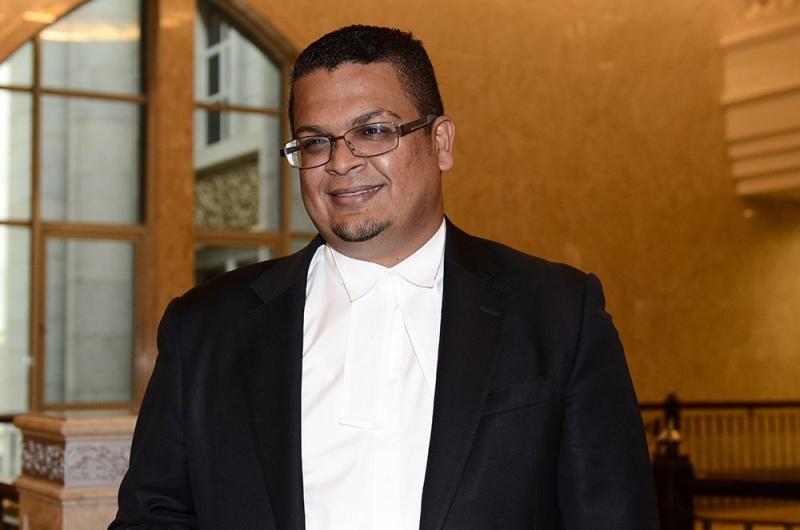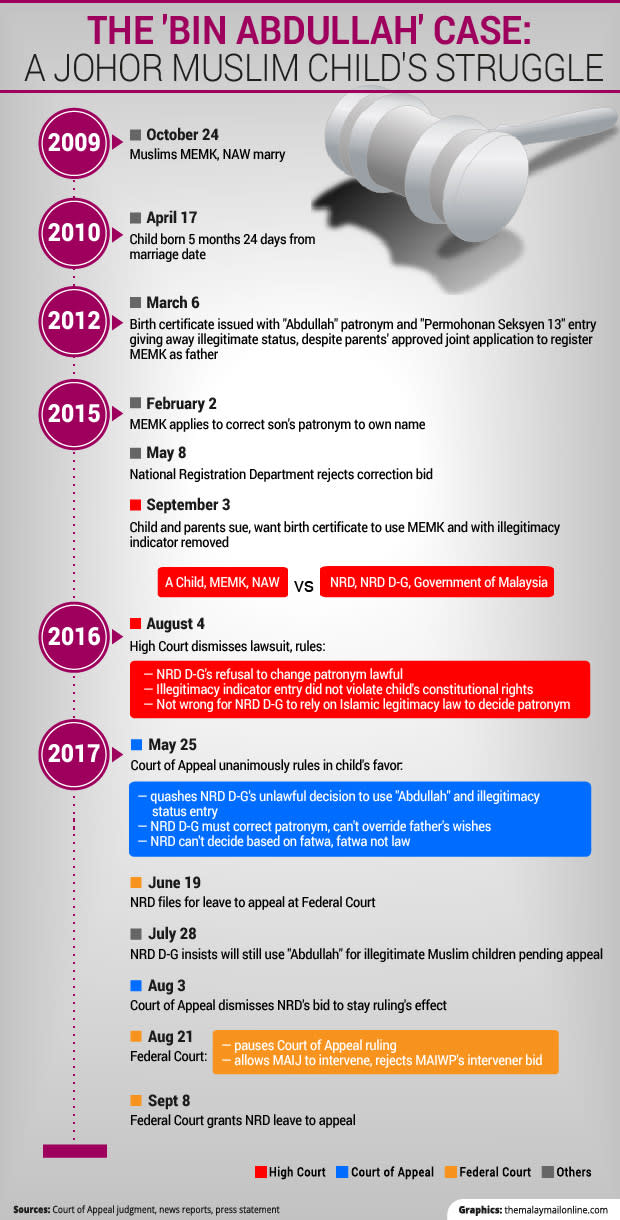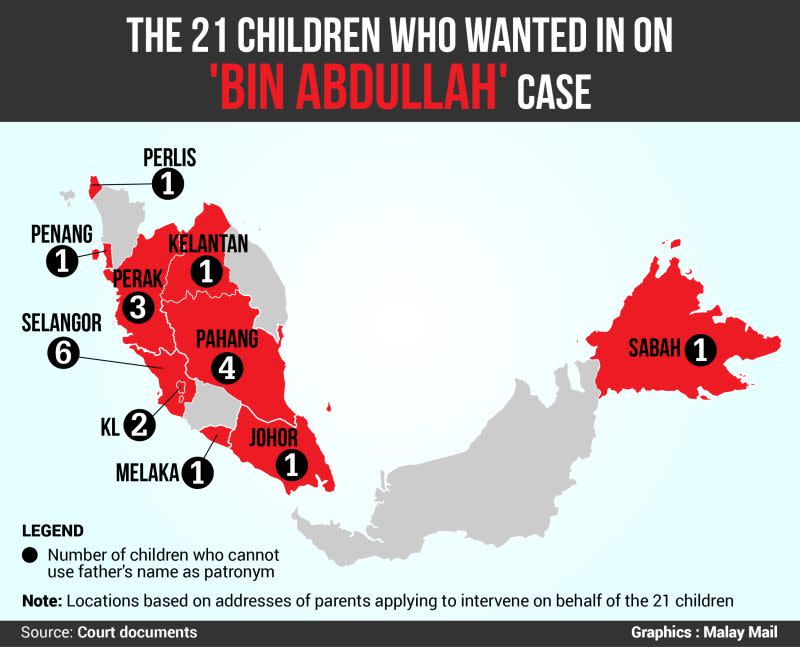Federal Court to hear ‘bin Abdullah’ case again with seven judges
Ida Lim
Malay Mail27 May 2019

View photos
Lawyer Nizam Bashir speaks to reporters at the Putrajaya court October 18, 2018. — Picture by Miera ZulyanaMore
KUALA LUMPUR, May 27 — The Federal Court will be having a panel of seven judges to preside over a fresh hearing of the high-profile “bin Abdullah” case, which has been in the courts since September 2015.
Lawyer Nizam Bashir, who represents the Johor Muslim couple who want their son to be able to officially carry the father’s name instead of the illegitimacy tag of “bin Abdullah, said the courts today fixed the date for the fresh hearing.
Nizam said that lawyers were informed during case management today that there would be a de novo hearing or fresh hearing of the case on August 16.
“The decision was the matter would be heard de novo,” he told Malay Mail when contacted today, referring to the decision conveyed by a deputy registrar at the case management.
It is understood that no reasons were given for the Federal Court’s decision to hear the “bin Abdullah” case afresh.
The Federal Court had on February 2018 heard the case with a panel of five judges headed by Court of Appeal President Tan Sri Ahmad Maarop, with the other judges then being Federal Court judges Tan Sri Aziah Ali, Datuk Sri Balia Yusof Wahi, Tan Sri Hasan Lah and former Chief Justice Tun Raus Sharif.
Under Section 78(1) of the Courts of the Judicature Act, at least two of the judges from the original coram must be available to deliver the judgment.
But Ahmad, who is currently carrying out the duties of the Chief Judge of Malaya until the position is filled, is the only judge among the initial five-man panel who is still serving and has yet to retire.
The road to finality in this case has been a protracted one, as it was initially set for a de novo hearing or fresh hearing before a panel of seven judges in October 2018.
In October 2018, the then Chief Justice decided that the seven-man panel would not rehear the case, but would let the remaining three judges of the initial five-man panel that had heard the case to deliver its decision.
On November 22, 2018, Ahmad chaired a panel with two of the still-serving judges of the initial five, with the trio scheduled to deliver the Federal Court’s decision on the case and having already prepared their written judgment.
But the Federal Court panel chaired by Ahmad had then unanimously approved the government’s application to defer the decision to allow for the matter to be resolved through “other means”.
The case had previously gone for mediation and it is understood that efforts to resolve the matter are still ongoing.
Nizam said his clients remain open to the idea of mediation, but have a firm position on what they expect from proceedings.
The case will come up for case management on June 28.

View photos
Panel of seven
Nizam said that his client’s lawyers had previously in April wrote to the chief justice’s office, where they said the case should be heard before a panel of nine judges as it was a matter of public interest.
“In response to that, they made the decision to have it heard before a panel of seven judges.
“We said this is a matter which involves very important constitutional issues that would have significant impact on members of the public.
“The fact that the panel is enlarged is a reflection of the courts’ agreement with our view,” he said, indicating that the panel of seven judges also shows the “importance” of the issues that will be decided by the court.
This case had attracted widespread attention, with 41 parents at one point showing their interest by seeking to be made a party to the case.
The 41 parents’ 21 children were born during the 1999-2017 period and faced the same “bin Abdullah” and “binti Abdullah” problem.
They were eventually made amicus curiae or friends of the court who can assist, the same status given to the Selangor Islamic Religious Council.
The Johor Islamic Religious Council is an intervener in the lawsuit.
The lawsuit was filed by the Johor Muslim couple given the initials of M.E.M.K and N.A.W and their child on September 3, 2015 against the National Registration Department (NRD), the NRD director-general and the government of Malaysia.
The trio had sought for a change of the child’s birth certificate details to use the father’s name instead of the “bin Abdullah” patronym.
The High Court had on August 4, 2016 dismissed the Johor Muslim couple’s lawsuit, ruling that it was lawful for the NRD director-general to refuse to change the “bin Abdullah” patronym in the child’s birth certificate.
The Court of Appeal had on May 25, 2017 unanimously delivered a landmark ruling that quashed the NRD director-general’s decision to use the “bin Abdullah” patronym, also ordering him to correct the patronym in the birth certificate as he cannot override the father’s wishes to have his name used.
But the NRD had appealed to the Federal Court against the Johor Muslim couple’s successful bid to remove the “bin Abdullah” name for their child in official records.
The child was five years old when the lawsuit was filed, and is now aged nine with his parents still waiting for him to be able to take on his father’s name in official records.

View photos
R









